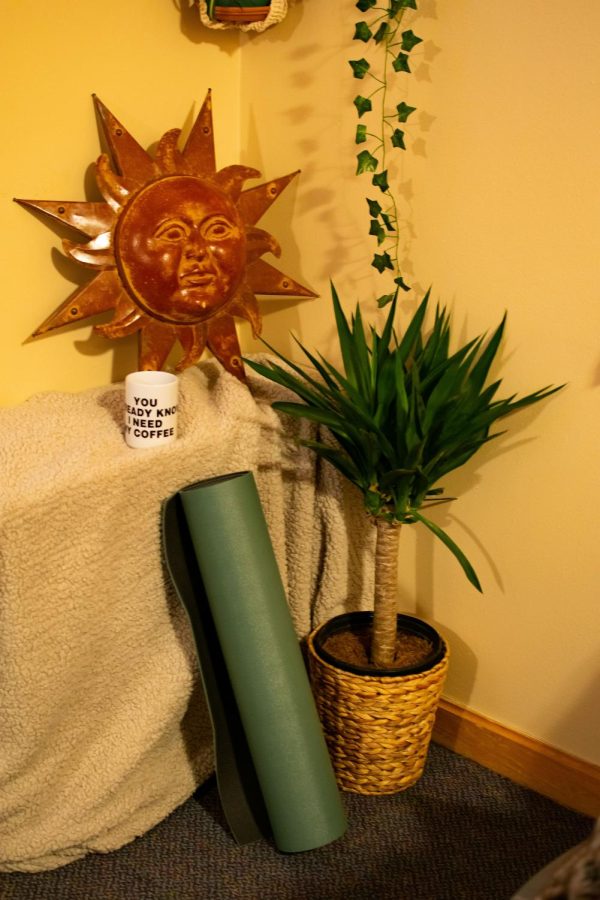A nine-week student wellness program begins Feb. 25 to guide Marquette students in finding greater balance in life to feel less stressed, be kinder to themselves and experience more gratitude.
“Wellness may seem like a simple, straightforward term, but it actually consists of several dimensions,” Debbie Contreras-Tadych, a psychologist at the Marquette University Counseling Center, said.
Alyson Gerdes, a professor in the department of psychology, and Nakia Gordon, an associate professor in the department of psychology, started “Calming the Chaos” to help guide students on their wellness journey.
Throughout the program, student volunteers will complete wellness exercises such as diaphragmatic breathing or “belly breathing,” yoga, goal setting, nutrition, gratitude, self-compassion and more.
“It’s a different wellness activity each of those weeks and we talk about the wellness activity, we practice it during that week and then it’s another tool in their toolbox of wellbeing strategies that they can use at any point,” Gordon said.
The Marquette University Counseling Center outlines the eight dimensions of wellness as physical, emotional, social, spiritual, intellectual, financial, environmental and occupational wellness.
Activities such as yoga and nutrition will help promote physical wellness and teach students how to take care of their bodies for optimal health and functioning.
The Marquette University Counseling Center encourages students to learn emotion regulation and how to handle both positive and negative feelings to take care of their emotional wellness.
Another form of wellness, social wellness, focuses on answering questions such as What aspects of your social life do you enjoy? and What parts would you like to improve?
Intellectual wellness exercises will engage students in creative and mentally-stimulating activities which will provide specific skills that can be used to maintain personal wellness, Contreras-Tadych said.
Financial, environmental and occupational wellness are all focused on maintaining a healthy and happy lifestyle for yourself. During the program, students will use goal setting to achieve these areas of wellness.
Gordon said that the Ignatian principles will be used at the end of the program as a way for students to reflect on their experiences through the last form of wellness, spiritual wellness.
The Ignatian principles are openness, generosity, courage, interior freedom, a habit of prayerful reflection on one’s experience, having one’s priorities straight and not confusing ends with means. Ignatius spells out these qualities for an authentic discernment process seeking God’s will and to answer the question, how do we know what God wants us to do in life?
“You hear me using the word wellness and I’m purposely not using mental health or mental well-being because people are whole vessels and we want to approach as many aspects of their lives as we can,” Gordon said.
Contreras-Tadych said wellness is increasingly important for students as they enter into early adulthood.
“The balance that wellness provides allows students to better cope with the stresses that come with being in college, increases self-confidence that is needed to learn and grow in one’s chosen career path and the ability to cultivate and maintain meaningful and healthy relationships,” Contreras-Tadych said.
Through this nine-week program, Gerdes and Gordon want students to learn specific ways to take care of all aspects of their wellbeing.
“I hope that students walk away with an appreciation that personal wellness is important to all of our lives and that it requires active work to maintain wellness,” Gerdes said.
The program begins Friday, Feb. 25 at 12 p.m. in Schroeder Complex room 112 and will meet for nine weeks.
If you would like to participate in the student wellness journey, email wholepersonwellness@marquette.edu with the subject line “Interested in student wellness.”
This story was written by Bailey Striepling. She can be reached at bailey.striepling@marquette.edu.



